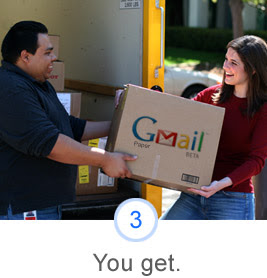The following are excerpts from the CIO magazine article “ABC: An Introduction to Outsourcing” by Stephanie Overby, March 09, 2007. The article does a great job of covering all of the major issues that a CIO should explore when considering outsourcing IT functions. The full article is available at:
http://www.cio.com/article/print/40380*Why is outsourcing so hard?
-The failure rate of outsourcing relationships can be anywhere from 40 to 70 percent.
-The problem is the inherent conflict of interest
-The most prevalent cause of outsourcing failure is the rush to outsource in the absence of a good business case.
-Discrete processes that have well-defined business rules, are successful 90 percent of the time
-Co-sourcing alliances, in which client and vendor jointly manage projects are successful only 63 percent of the time
-"Strategic partnerships", in which a single outsourcer takes responsibility for a big bundle of IT services are successful 50 percent of the time
-Risks increase as the boundaries between client and vendor responsibilities blur and the scope of responsibilities expands.
*Should I outsource everything to one vendor? Or should I use a best-of-breed approach?
-The trend has turned toward the multi-vendor approach, incorporating the services of several best-of-breed vendors to meet IT demands.
-CIOs need to dedicate staff to oversee each vendor relationship and establish regular reviews of vendor performance with measurement applications such as dashboards or vendor scorecards.
-CIOs need to spell out that vendors should cooperate and refrain from blaming each other
-Qualified staff, with financial as well as technical skills, are needed to help run a project management office
*What are the "hidden costs" of outsourcing?
-Depending on what is outsourced and to whom, studies show that an organization will end up spending 10 percent above that figure to set up the deal and manage it over the long haul.
-That figure goes up exponentially—anywhere from 15 to 65 percent—when the work is sent offshore and the costs of travel and difficulties of aligning different cultures are added to the mix.
*How important is ongoing relationship management to outsourcing success?
-One study found that customers said at least 15 percent of their total outsourcing contract value is at stake when it comes to getting vendor management right.
-A highly collaborative relationship based on effective contract management and trust can add value to an outsourcing relationship.
-An acrimonious relationship, however, can detract significantly from the value of the arrangement, the positives degraded by the greater need for monitoring and auditing.
-Successful outsourcing is built on "a network of relationships not transactions," and outsourcing governance is the single most important factor in determining the success of an outsourcing deal
-Gartner found that fewer than 30 percent of enterprises will have formal sourcing strategies and appropriate governance in place.
-In a 2004 survey of 130 CIOs, 42 percent said they were dissatisfied with their outsourcing relationships, according to outsourcing advisory company EquaTerra, primarily due to poorly developed, underbudgeted and undersourced governance models.
*Where’s the best place in the world to outsource IT?
-It depends on what you’re outsourcing, why, and your in-house capabilities for managing the relationship.
-The best place in the globe in terms of people skills and availability for IT services remains the United States, according to A.T. Kearney Global Services Location Index 2005.
-Top financial structures to support outsourcing? Philippines and Ghana.
-Best IT services business environment? Singapore.
-India and China (to a lesser degree) still dominate for IT services in the Asian region, although turnover in India and intellectual property issues in China (and rising wages in both locations) remain significant concerns.
-Central and Eastern Europe are attractive destinations, but costs are rising there, too.
-Offshoring is actually increasing in Africa and the Middle East, but political instability poses ongoing challenges there.
-The decision about where to outsource should be one of the last in the outsourcing decision- making tree.
-Figure out what your outsourcing requirements are first.






















